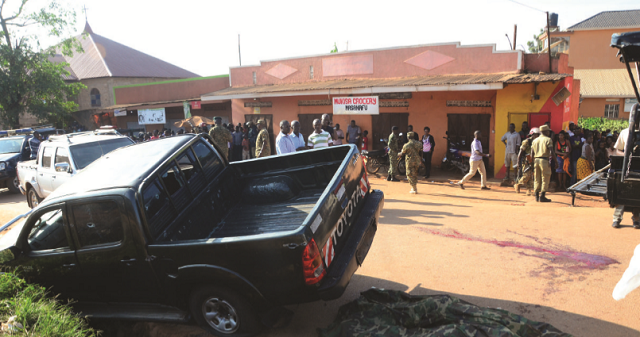
Economic tension
Ssewanyana is concerned about such growing tension between the haves and have nots. He says although increasing economic hardships and income disparities are likely to lead to increased crime levels, he does not expect any government intervention to better the economic outturn. He says this is majorly because the country remains largely import driven. He adds drought worsening the situation.
Dr. Sabiiti Makara, who teaches Political Science at Makerere University, agrees.
“The economy is in a bad state and it could be worse in 2017 and that without a doubt affects the politics because it will create more anger and more resistance against the regime.”
Makara says one of the issues that he expects to cause draw public anger is Museveni’s push to extend his rule by expunging the age limit from the constitution that currently bars him from contesting after 2021.
He says clashes between security forces, army, and police are likely to continue as Museveni pushes to remove all obstacles to his stay in power.
Makara says that because Museveni’s party, the ruling National Resistance Movement (NRM) dominates parliament and all other institutions, he does not expect the country to be run any differently than in the past.
But even ruling party stalwarts like Elijah Mushemeza, a former Vice Chairperson of the ruling party’s Electoral Commission, see dark clouds ahead.
For Mushemeza, who is currently a research fellow at the NGO called Advocates Coalition for Development and Environment (ACODE), poor governance, corruption, and the government’s bad handling of the agricultural sector are the big problems of 2017. He also says external pressures on Uganda will continue to have an impact as capital inflow to African countries like Uganda continue going down because trading partners—the European Union and China—are going through an economic recession.
“2017 could be worse and one can only imagine what will happen with the agitation already becoming unmanageable,” he says.
He says the situation is worsened by Uganda’s increasing appetite for imported goods and services while exporting little or nothing.
“Even areas where we have a comparative advantage like tourism and agriculture, we are having problems,” he says, “Tourism is being affected by our governance issues; defiance and the state’s response to it.
“What happened in Kasese and how the police and the army responded to it has scared away tourists.”
In agriculture, he says, Uganda has been disorganised by climate change and failure to pay enough attention to the sector in terms of quality, quantity and tapping the market.
He also says the government has not handled corruption as it should have.
 The Independent Uganda: You get the Truth we Pay the Price
The Independent Uganda: You get the Truth we Pay the Price


